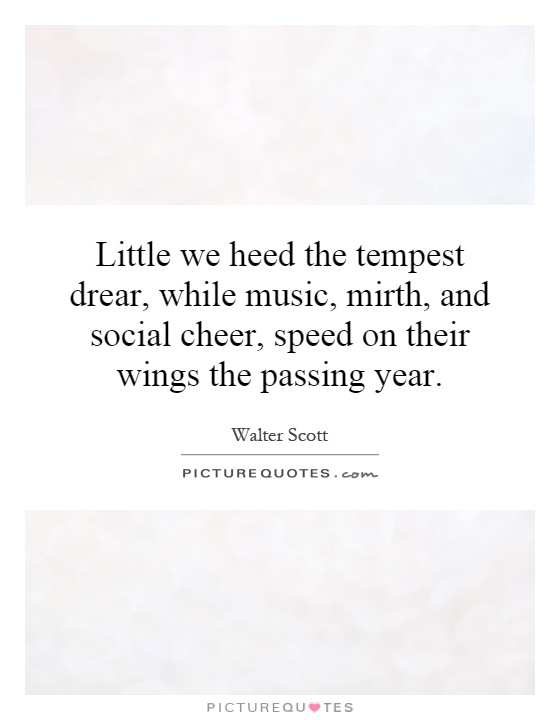Little we heed the tempest drear, while music, mirth, and social cheer, speed on their wings the passing year

Little we heed the tempest drear, while music, mirth, and social cheer, speed on their wings the passing year
Sir Walter Scott, the renowned Scottish novelist and poet, was a master at capturing the essence of life's fleeting moments in his works. In the quote "Little we heed the tempest drear, while music, mirth, and social cheer, speed on their wings the passing year," Scott beautifully encapsulates the idea that in the midst of life's storms and challenges, it is often the simple joys of music, laughter, and companionship that carry us through.Scott's writing often reflects his deep appreciation for the power of music and social connection to uplift the human spirit. In his novels and poems, he frequently portrays scenes of revelry and celebration, where characters come together to share in the joys of music and merriment. These moments of camaraderie serve as a respite from the hardships and trials of life, offering a sense of warmth and comfort in the face of adversity.
The image of a tempest may symbolize the tumultuous nature of life, with its ups and downs, trials and tribulations. Yet, Scott suggests that even in the midst of chaos and uncertainty, the presence of music, mirth, and social cheer can serve as a beacon of hope and resilience. These simple pleasures have the power to transcend the darkness of the storm, bringing light and joy into our lives.
Scott's own life was marked by both triumphs and tragedies, yet he remained steadfast in his belief in the power of music and social connection to sustain the human spirit. His writings reflect a deep understanding of the human experience, capturing the complexities of life with grace and insight.












 Friendship Quotes
Friendship Quotes Love Quotes
Love Quotes Life Quotes
Life Quotes Funny Quotes
Funny Quotes Motivational Quotes
Motivational Quotes Inspirational Quotes
Inspirational Quotes